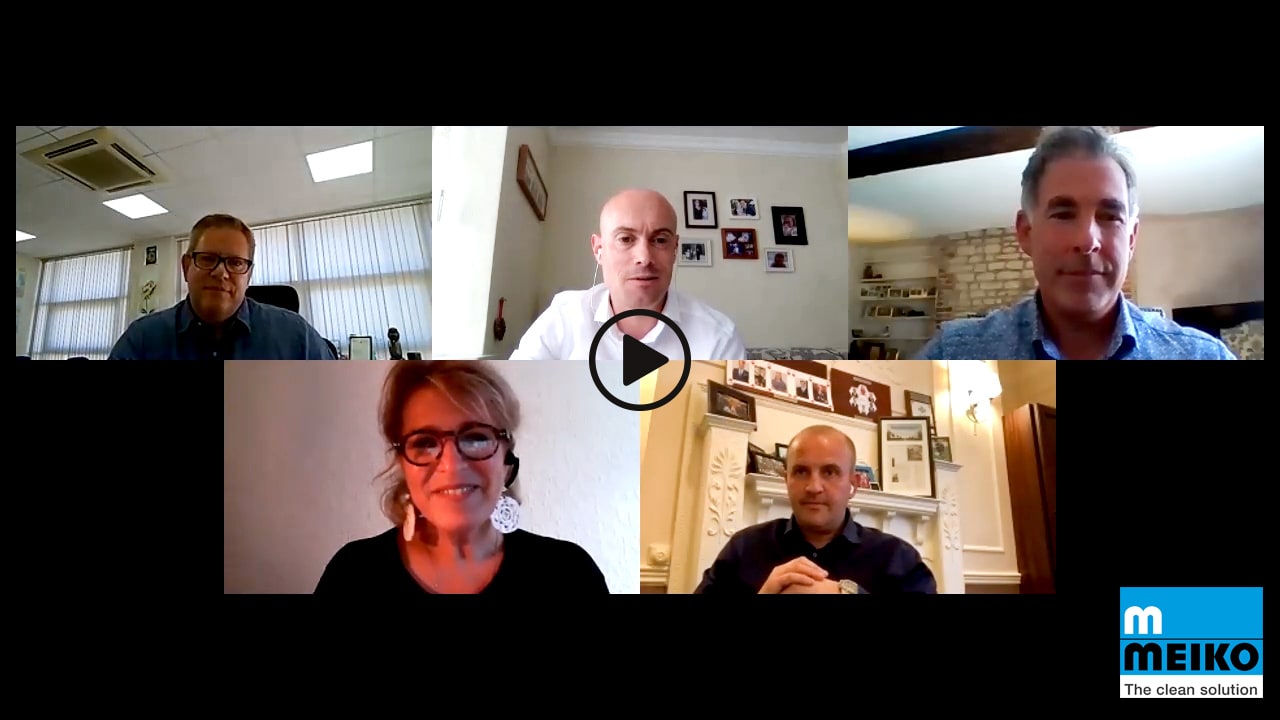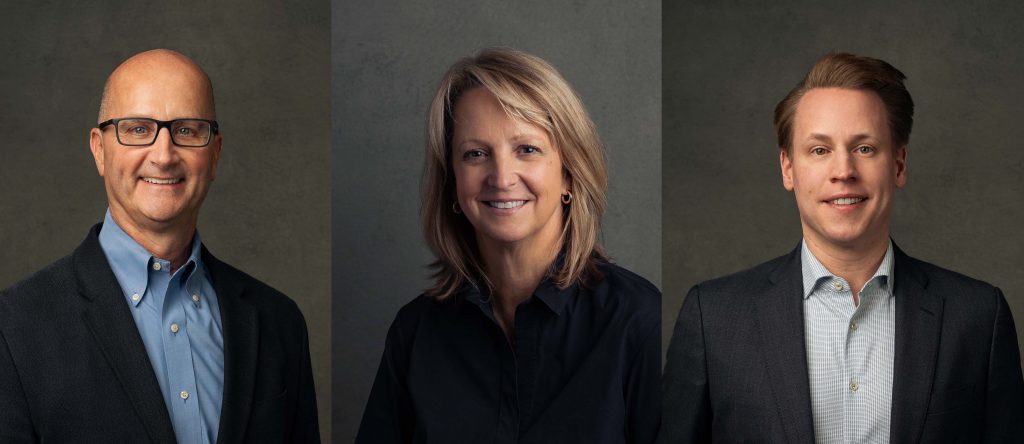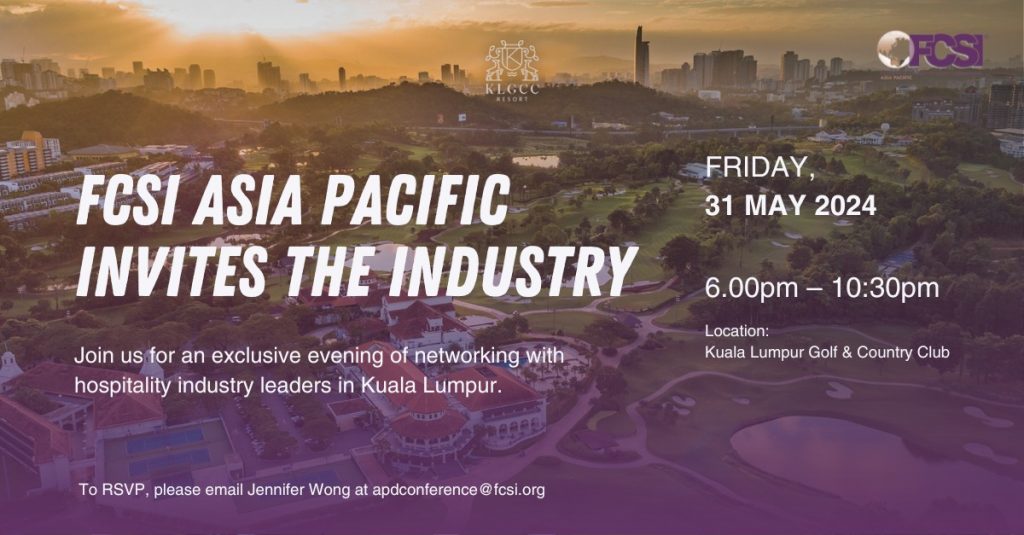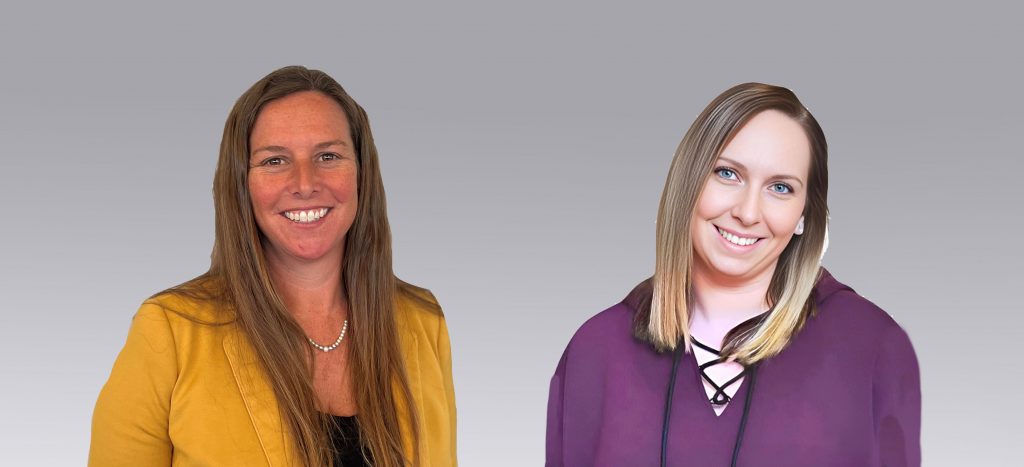Hosted on Tuesday 19 May 2020, FCSI’s Hospitality and the ‘new normal’ roundtable, sponsored by Meiko, addressed the far-reaching implications of the Covid-19 pandemic on European hospitality sector, just at the very point that restrictions across much of Europe are in the first stages of being lifted.
Our expert panellists were Bettina von Massenbach FCSI, owner of Oyster Hospitality Management; Mark Dempsey, consulting director, GlobalData; Stuart Procter, COO, The Stafford Collection and general manager of The Stafford, London; and Paul Anderson, managing director, Meiko UK.
The panel took on a wide range of topics as to what the ‘new normal’ of foodservice will look like in a rapidly changing and challenging landscape – from the potential design impacts on commercial kitchens and front-of-house areas, to staff training and how hospitality venues should re-open when the time is right.
You can watch the video below:
The learning curve
“I’m never giving up my optimism, but 30-40% of [restaurant] businesses will fail to reopen. In Germany, one million people will lose jobs in the sector. It’s devastating, but it’s getting better every day, slowly,” said van Massenbach, who believes “rebuilding trust” is one of the biggest issues operators will face to entice wary customers back.
“It’s a massive learning curve – you’ve got to be one step ahead. It won’t go back to normal and it’s going to be strange,” said Anderson of the re-opening process for the hospitality sector. “It’s not going to be the same, but the human spirit has a need to interact. The minute we can do that, we will. The places might be subtly different, but we’ll adapt.”
“Every day is a school day,” agreed Procter, whose high-end operation is using a dark kitchen in Battersea, London, to test pilot a new pizza company. “We all need to diversify. If we think by doing the same thing we’re going get the same results, we’re absolutely kidding ourselves. There’s no box to think outside of any more. Just go and do what you think is best, frankly.”
Dempsey believes many foodservice operators around the world should use this time wisely to tell consumers about their ethics and values. “Now is the time to be charitable and to think about those in the greatest need. That’s the right intent. Communicate clearly, be proactive. Those operators and suppliers will come through this the strongest. People will remember the good deeds.”
Taking the positives
The panel all agree, however that this period of reflection, albeit enforced, can help the industry to reflect on what it does and, ultimately, to improve its offering. “We’re getting closer to ourselves and each other. That’s changing the world,” said van Massenbach.
“People are looking for connections,” said Dempsey. “Maybe we’ve been too apathetic about loyalty. [This period] might stimulate operators to think about the best way to communicate and connect with consumers and the best way to drive loyalty. It’s due an overhaul. This could be a significant positive.”
Procter agreed: “Connectivity is fundamental. Brands have to listen to consumers and really deliver. The positivity from this is to respect your client and really give them what they want.”
Anderson believes that ultimately, despite the tragic and devastating trail of destruction caused by Covid-19 on the sector, “if the world is going to be a cleaner place, that’s a good thing. Everybody wins from that.”
Michael Jones
Further details:
To find out more about our sponsor Meiko, please visit here.





